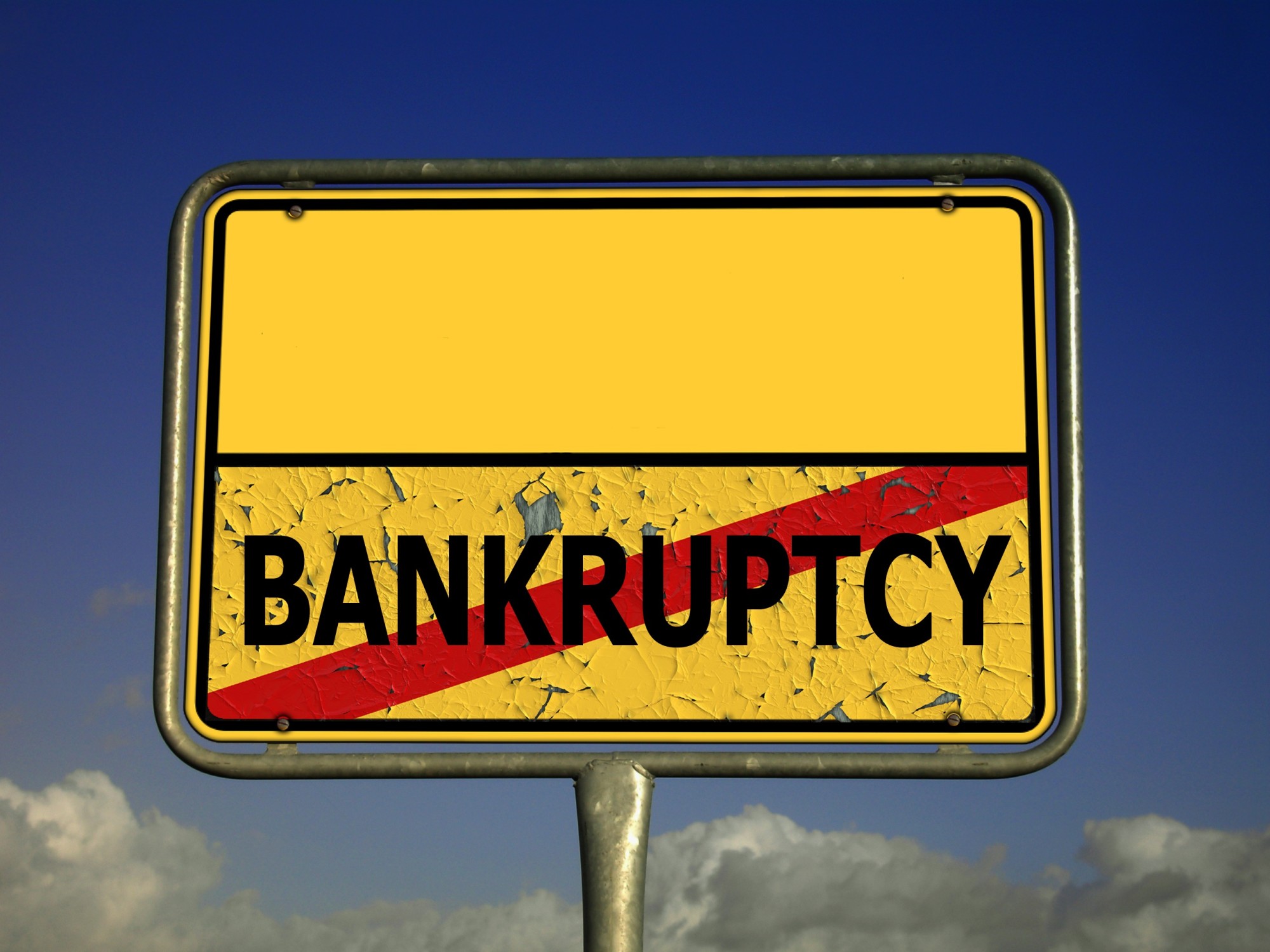Struggling with your finances? You’re not the only one. The average American now carries a personal debt of $90,460.
For many of us, debt is just another part of life. We make repayment plans, pay off our debts in monthly chunks, and continue with our day. But when debt gets out of control, it can leave you feeling isolated and afraid to ask for help.
If your debt is becoming unmanageable, then it could be time to consider bankruptcy, which can alleviate extreme financial pressure. In this article, we’ll answer frequently asked questions like “what is bankruptcy?” and “how do I file?” so that you can find out more about the process and determine whether it’s a good option for you.
We’ll also share some handy tips to avoid bankruptcy in the first place, so you might want to take notes!
What Causes Debt?
Many people mistakenly believe that debt is caused by overindulgence or spending beyond your means. So let’s start by setting the record straight.
More often than not, debt starts to pile up due to unexpected circumstances that are beyond our control. In the U.S., two of the leading causes of personal bankruptcy are medical bills and divorce. If you’re living paycheck to paycheck, it’s easy to see the damage they could do to your finances in a short space of time.
If your financial situation has been affected by unexpected circumstances like these, you shouldn’t feel guilty. Life throws us curveballs every now and then. What’s important is that you focus on tackling your rising debt as soon as possible, rather than leaving it to pile up.
What Is Bankruptcy?
No one plans to file for bankruptcy, but it’s important to how know it can act as a lifeline if your finances are spinning out of control.
Bankruptcy is a legal process that helps individuals manage debts that they cannot afford to pay. If you are declared bankrupt, you’ll be able to seek relief from some or all of your debts, so it is sometimes seen as a fresh financial start.
You usually need to have bankruptcy declared by court order. A debtor might initiate the process on your behalf, but you can also initiate proceedings yourself, with the right bankruptcy lawyer supporting you.
In the United States, there are two main types of bankruptcy declarations. It’s important to know the difference between them before filing:
- A chapter 7 bankruptcy cancels all qualifying debts in their totality
- A chapter 13 bankruptcy requires you to structure a repayment plan, normally by negotiating with lenders until an agreement is reached
The type of bankruptcy you are able to file for will depend on your personal circumstances, your assets, and the total sum of debt to be repaid. There are also certain occasions where the timing of your bankruptcy file can have a long term impact on your financial health.
For example, if you are filing for bankruptcy because of a divorce, filing before the divorce proceedings are finalized might help you to retain more of your assets. This is why it’s so important to get help from a lawyer who can thoroughly investigate your personal circumstances.
How Do I Avoid Filing for Bankruptcy?
Declaring bankruptcy is sometimes viewed as a quick solution to getting out of debt. After all, who wouldn’t want their debts to be completely wiped?
While it will make your debts smaller or eliminate them, it’s not quite that simple. Declaring bankruptcy will have a long-term impact on your ability to apply for mortgages, credit cards, and other types of personal loans. And if you are approved for a loan, you’ll probably be offered a less attractive rate than your friends with clean credit scores.
For these reasons, it’s best to do everything you can to avoid filing for bankruptcy. At the very least, try to reduce your debts as much as possible before starting the process. Here’s how to do it.
Make a Budget and Cut Spending
Heard the phrase “if you fail to plan, you plan to fail?” Well, it applies in buckets here. The first significant step you can make towards healthier finances is to make a budget and stick to it religiously.
Start by working out how much money you spend each month and if possible, break this figure down into sections such as groceries, takeout, gas, and so on. Some mobile banking apps will even do this for you automatically, so check yours to see if it can save you the hassle.
Once you understand your spending habits, it’s time to rein them in. A good tip is to pay in cash as much as you can. Debit cards and mobile payments make it far too easy to spend your money, whereas physically having to hand over the green stuff makes us think twice!
Another idea is to hide your credit cards or give them to a friend, to avoid adding to your debt. (Don’t cancel your cards because you’ll reduce your credit limit and damage your credit rating.)
Live Within Your Means
If you can’t manage your lifestyle without your cards, it’s a sign that you are living beyond your means and you’ll need to downsize. This could mean moving to a smaller house, driving a less expensive car, and skipping vacations until your bank balance is looking healthier.
At the other end of the spectrum, you can eliminate unnecessary spending on things like:
- Pricey TV subscriptions
- Eating out
- Alcohol
- Cigarettes
- Gym memberships
Making these sacrifices won’t be fun, but it will dramatically reduce your debt. If you’re living beyond your means, your financial situation will only worsen.
Prioritize Your Debts
Often, people don’t have a structured approach to tackling their debts, which can make repayments confusing and more hassle than they need to be. After paying for your monthly necessities (like housing, gas, food, and utilities), focus on paying off the debt with the highest interest.
Pay as much as can off your highest-rate debt and make minimum repayments on the rest. Once you’ve tackled the biggest debt, move on to the next highest and continue until you’re back in the black.
It’s also worth investigating if you can defer certain payments or reduce them due to financial distress. Student loans often offer this option. Just remember that you’ll need to pay the debt eventually and make a note of when any payment holidays end to avoid penalties.
Consider Debt Consolidation or Settling Your Debts
Debt consolidation, where high-interest debts are paid off with a single, lower-interest loan, can be used to avoid bankruptcy.
Consolidation has the advantage of making your repayments more manageable, so it can be a great option if you prefer paying off your debts to keep your credit rating more intact. However, it still has its disadvantages. Lower interest usually means a longer loan term, so you could find yourself paying years down the line.
Debt settlement is another possibility. Settlement lets you reduce the amount of your debt by negotiating with each creditor individually. The theory is that creditors prefer you to pay off a chunk of the debt immediately, rather than have you declare bankruptcy later, which could result in them not getting anything.
Both strategies have their merits and weaknesses. Always consult with a specialist debt and bankruptcy attorney before deciding which option is right for you.
Seek Professional Help
One final piece of advice for avoiding bankruptcy is to make sure you seek out expert help when your personal finances start to suffer. Burying your head in the sand won’t help, whereas acting quickly can save you more struggles down the road.
That being said, remember to vet your financial advisor or bankruptcy lawyer thoroughly. You want them to be acting in your best interest and anyone asking you to pay an immediate fee for them to assist with your debt problem won’t be (Not to mention how counterintuitive this is!).
Avoid quick fixes and spend time researching your chosen expert. The right lawyer will charge honest rates and get better results than anyone promising an instant solution.
I’m Still Considering Filing for Bankruptcy, What Is My Next Step?
If you have tried to take the steps outlined above and are still struggling with your finances, then it could be time to take the next step. Sometimes, bankruptcy is the best choice and if you do need to file, you know that you’ve tried alternative options beforehand. Once the process is finalized, you can have a fresh start and work towards improving your credit history.
If this post has helped you answer questions like “what is bankruptcy” and “how can I avoid bankruptcy,” please explore the rest of our site for more financial advice, and support!





